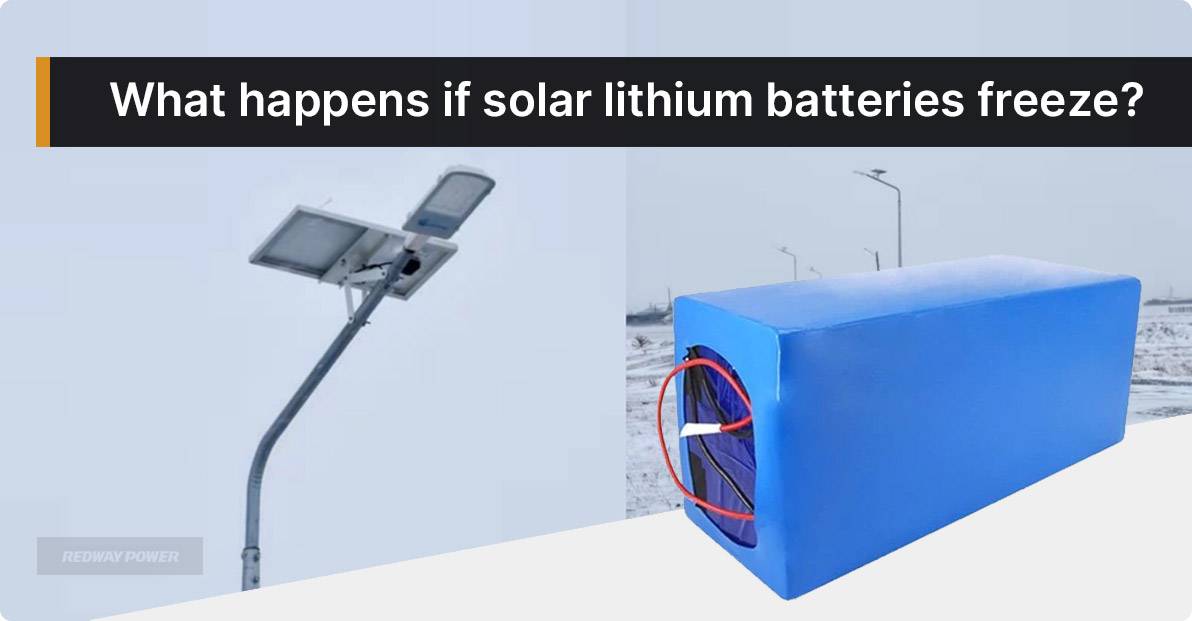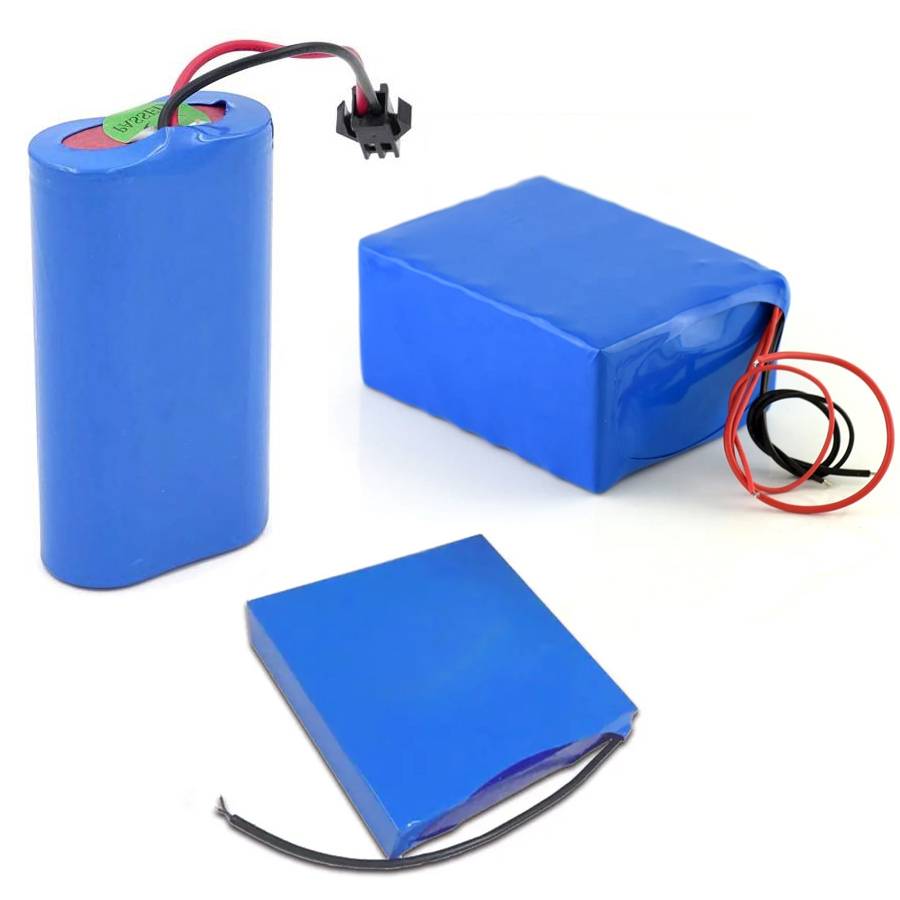Solar Light Lithium Batteries Factory Wholesale
Solar Light Lithium Batteries, One-Stop Solution
Redway Power leads the industry in manufacturing Solar Light Lithium Batteries, tailor-made for solar-powered lighting systems. These rechargeable lithium-ion batteries efficiently store solar energy during the day, ensuring reliable illumination for solar lights during the night.
Redway's Solar Light Lithium Batteries stand out with their high energy density, lightweight design, and eco-friendly features, contributing to sustainable off-grid lighting solutions. Ideal for various applications like garden lights and street lights, these batteries epitomize Redway Power's commitment to providing advanced, energy-efficient, and environmentally friendly power solutions for solar lighting, promoting a greener and more sustainable approach to outdoor illumination.
Your Trusted OEM Lithium Batteries Manufacturer
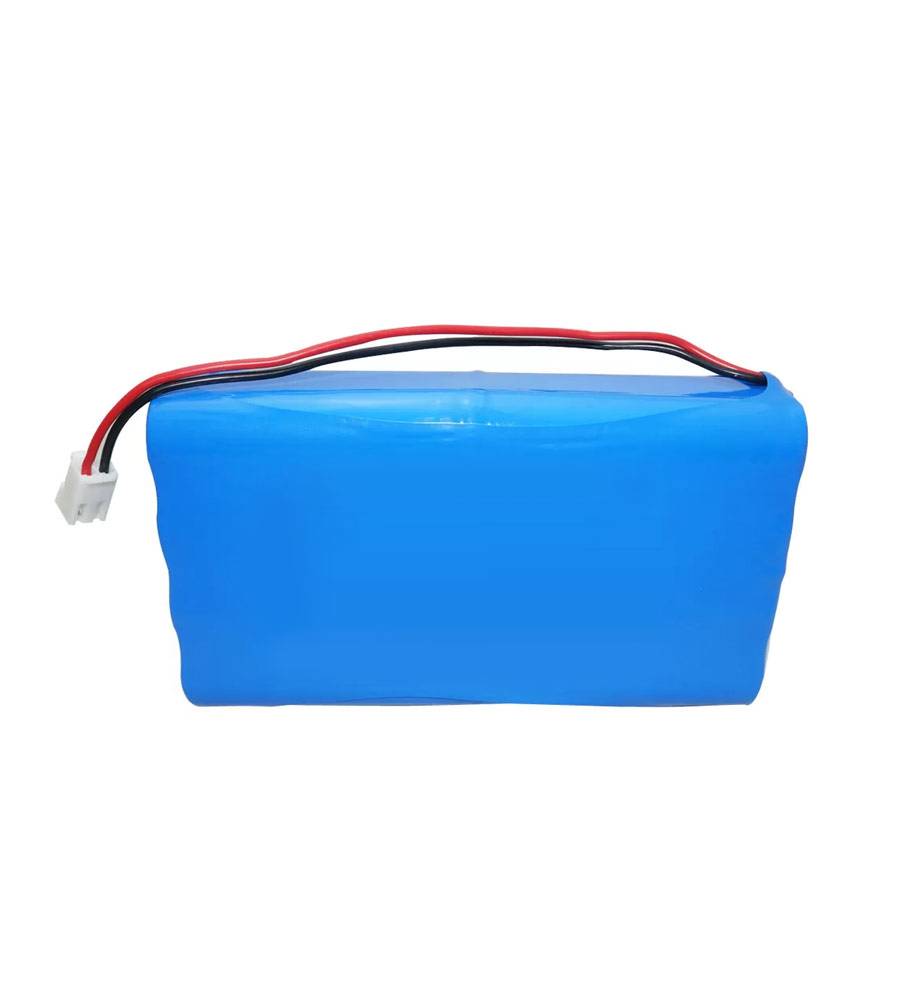
12V 6Ah
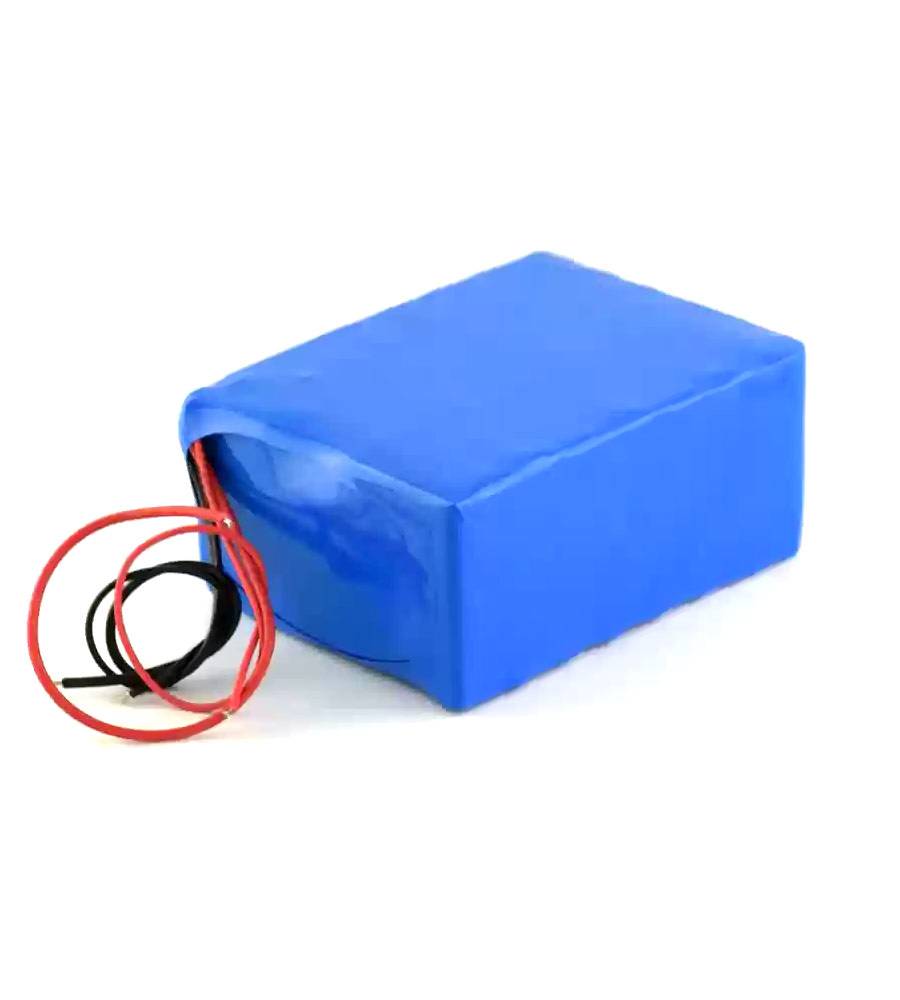
12V 15Ah
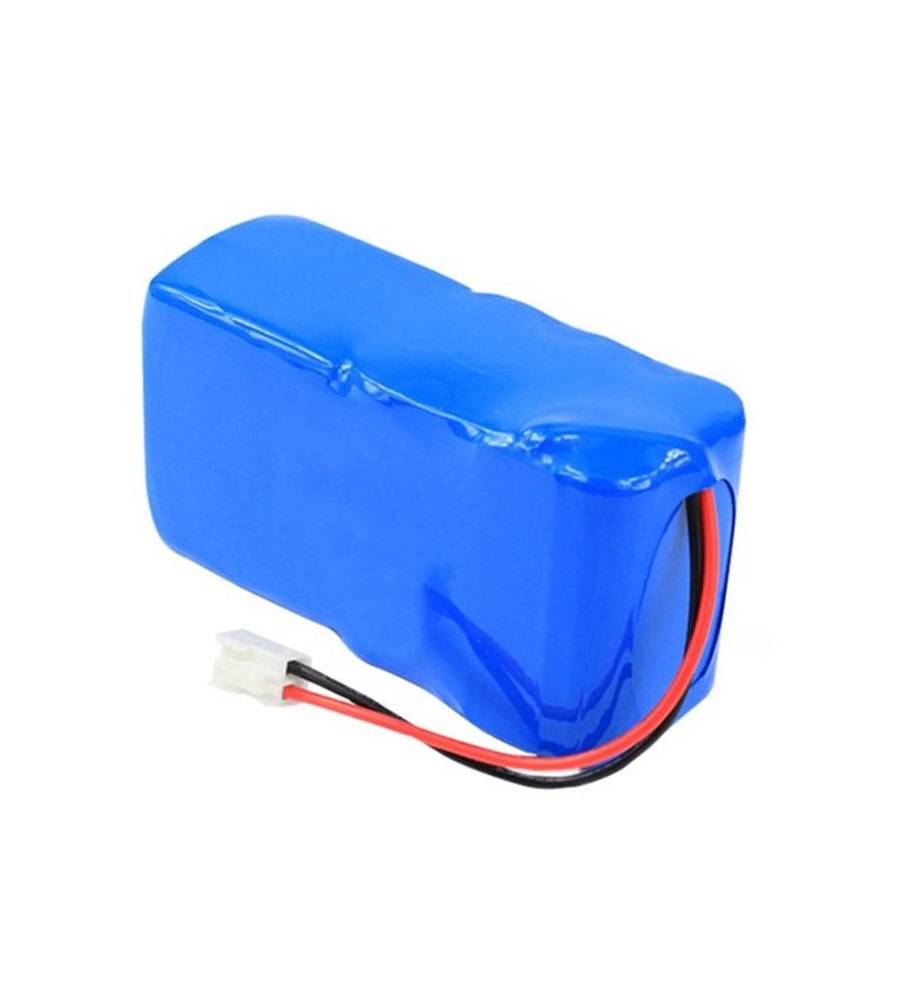
12V 20Ah
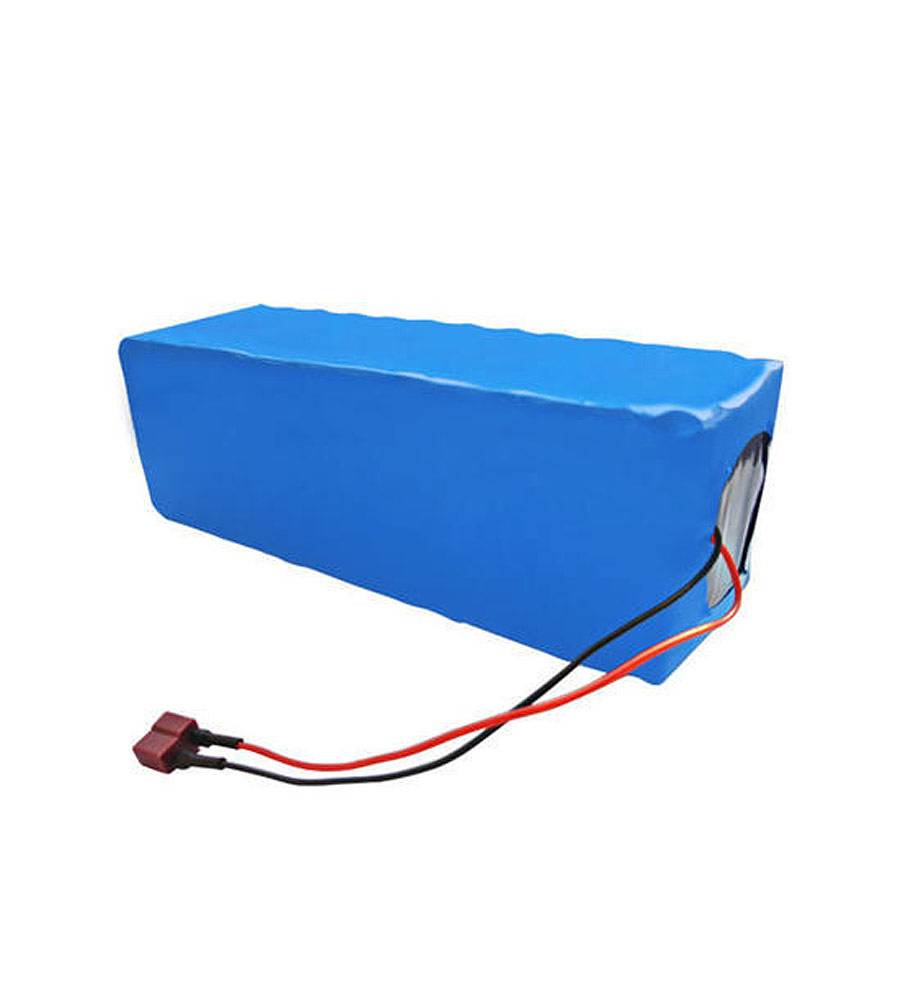
12V 20Ah
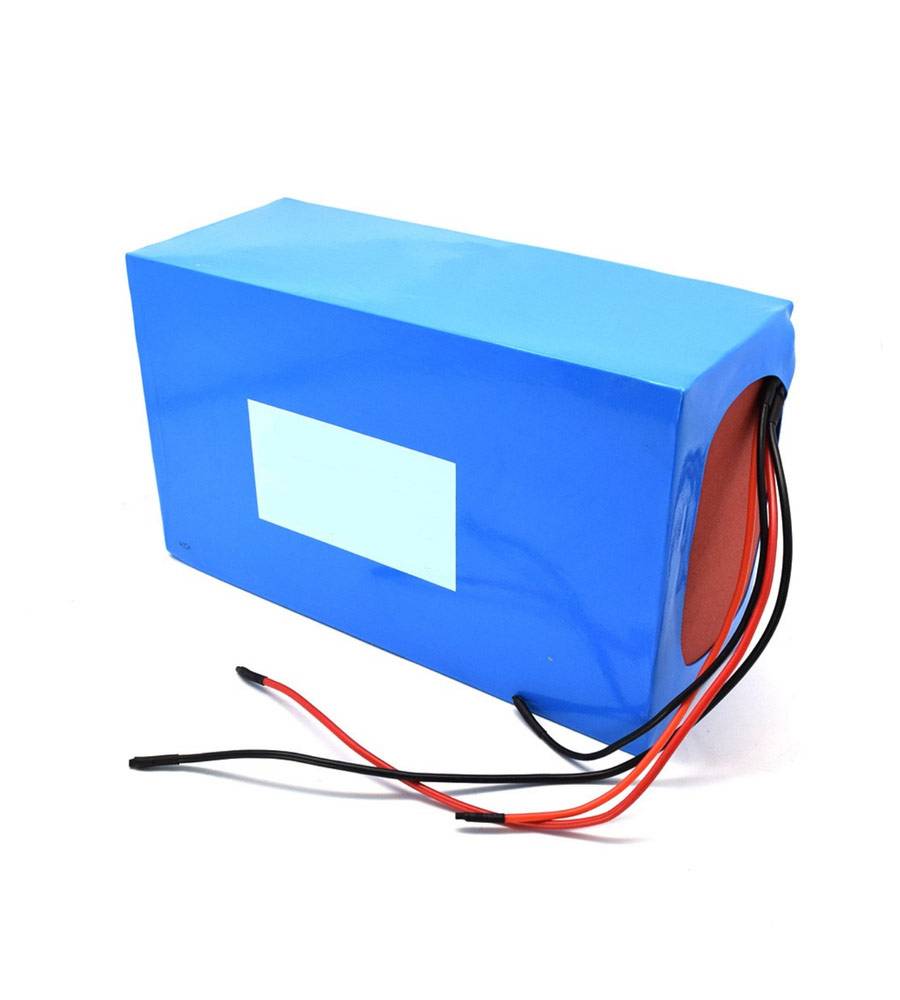
12V 30Ah
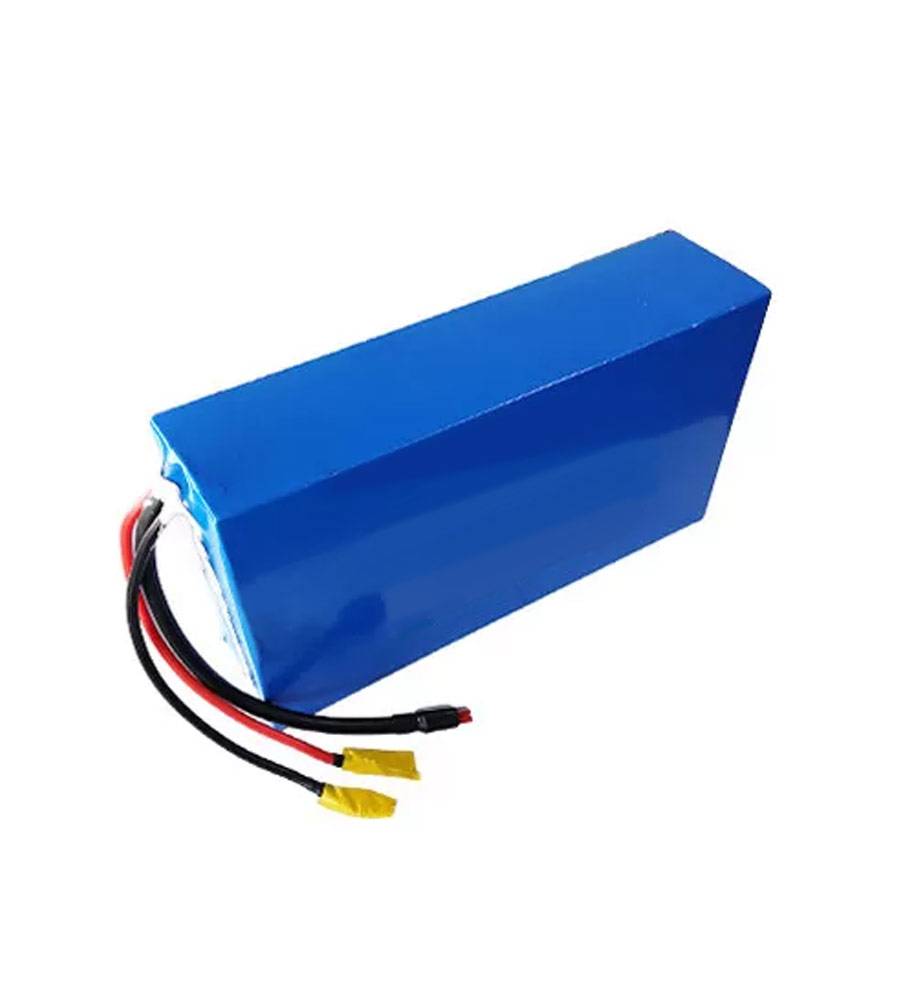
12V 40Ah
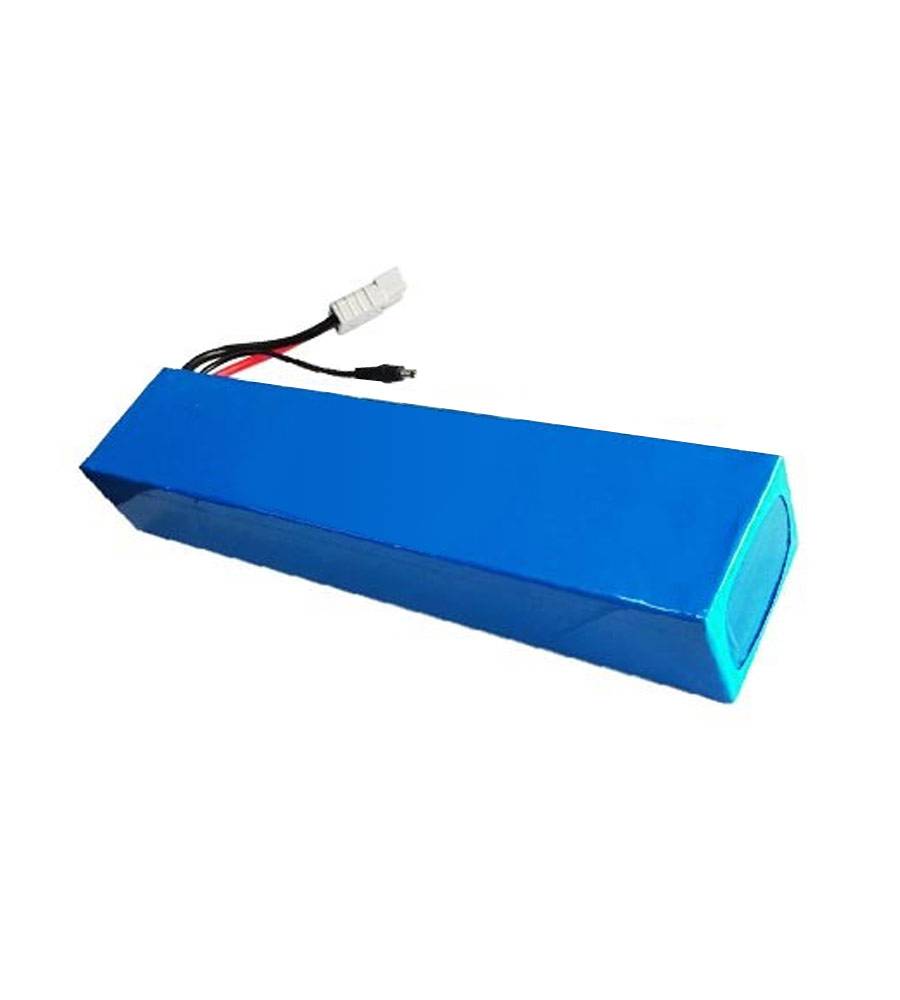
12V 60Ah
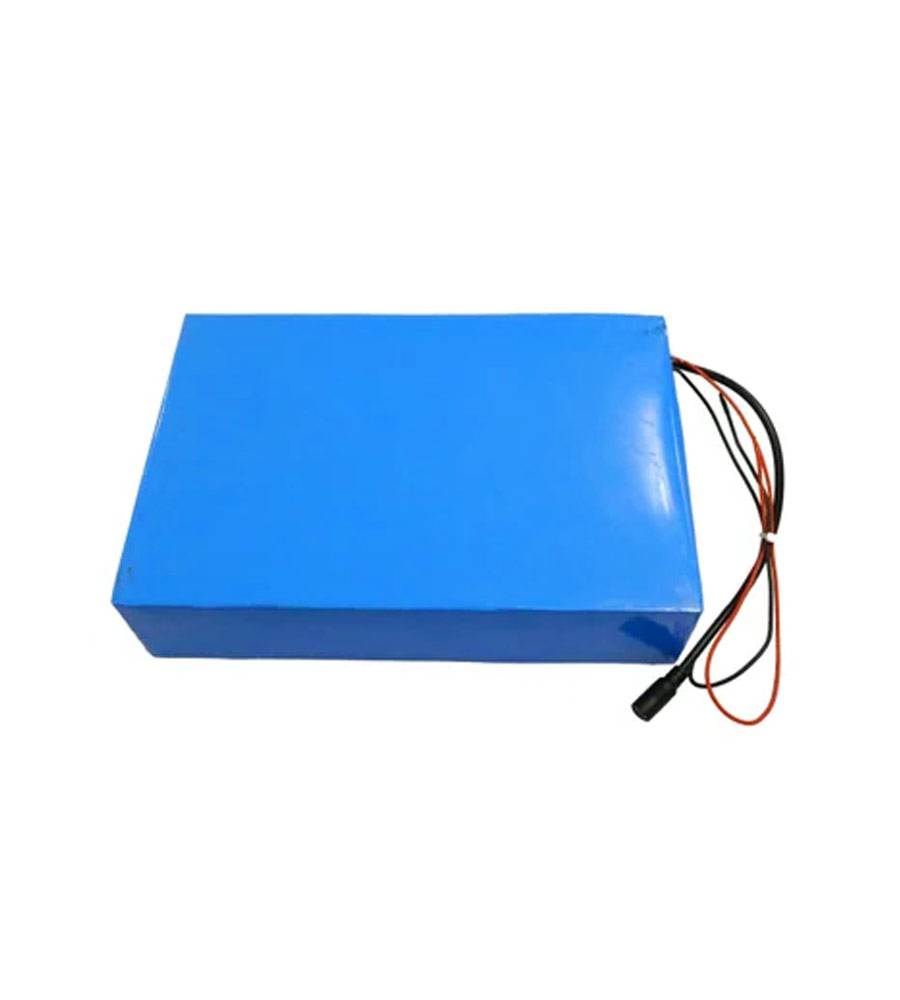
24V 30Ah
What is the wholesale price of lithium battery?
You can click contact us or phone call us. We will give you multiple options of price.
Is Redway Power a trading company or factory?
Redway Power is a company with its own factory, integrating research, development, production, and sales.
How about the quality of Redway's LiFePo4 Battery product?
Redway Power boasts over 12 years of experience in LiFePO4 battery production and is an authorized supplier for CATL and BYD.
Can you do an OEM/ODM project?
Yes, we have engineers available to assist in designing and developing any related products.
What’s your MOQ?
MOQ varies according to battery voltage and capacity.
What payment terms can we accept?
We accept TT/Paypal/West Union, etc.
What are solar light lithium batteries?
Solar light lithium batteries, such as lithium-ion or lithium iron phosphate (LiFePO4) batteries, are designed for solar-powered lighting systems. They offer high energy density, long cycle life, low self-discharge rate, high efficiency, temperature tolerance, lightweight, and compact design. These batteries require minimal maintenance and play a crucial role in providing reliable energy storage for outdoor solar lighting applications.
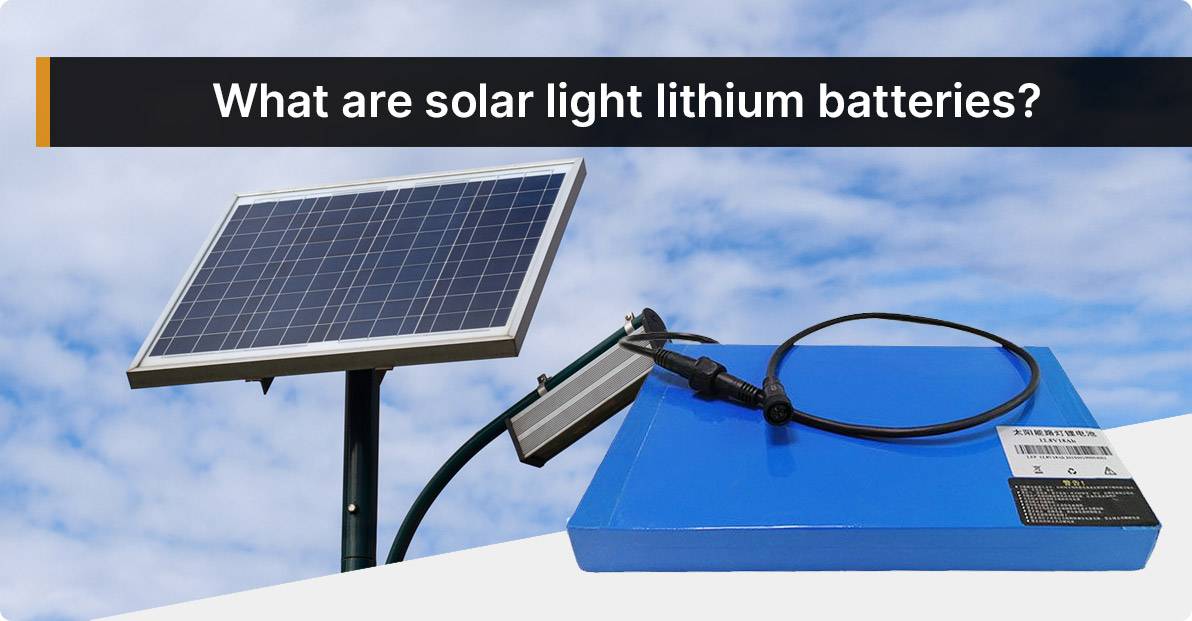
Can you use lithium batteries in solar lights?
Lithium batteries are a preferred choice for solar lights due to their high energy density, long cycle life, low self-discharge rate, and high efficiency in charging and discharging processes. Their ability to store a significant amount of energy in a compact and lightweight form makes them ideal for solar lights where space and weight considerations are crucial.
Additionally, lithium batteries exhibit excellent temperature tolerance and require minimal maintenance compared to other battery types. Their lightweight and compact nature allow for flexible and space-efficient designs in outdoor lighting fixtures. While lithium batteries offer numerous advantages, it's essential to follow the recommendations of the solar light manufacturer to ensure compatibility and optimal performance.
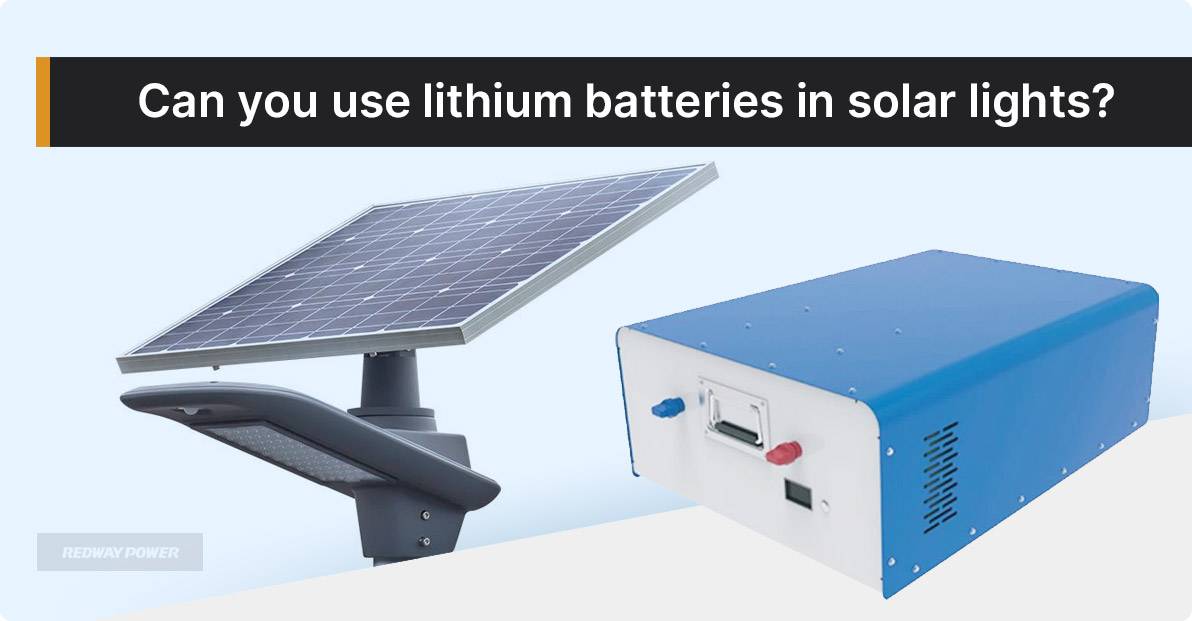
Is there a difference between solar light batteries and regular batteries?
Yes, there are notable differences between batteries designed for use in solar lights and regular batteries. The key distinctions include the type of battery chemistry, their suitability for rechargeable applications, and the specific requirements of solar-powered devices. Here are the primary differences:
Rechargeable vs. Non-Rechargeable:
Solar Light Batteries:
- Batteries used in solar lights are typically rechargeable. Solar lights operate by harnessing sunlight to charge the batteries during the day, and the stored energy is used to power the light during the night.
- Common rechargeable battery types for solar lights include Nickel-Metal Hydride (NiMH) and Lithium-ion (Li-ion) batteries.
Regular Batteries:
- Regular batteries, such as alkaline batteries, are non-rechargeable. They are designed for one-time use and are not suitable for repeated charging cycles. Using regular batteries in solar lights designed for rechargeable batteries can lead to performance issues and reduced battery life.
Battery Chemistry:
Solar Light Batteries:
- Solar light batteries often use specific rechargeable chemistries optimized for cyclic use (repeated charge and discharge cycles). Common chemistries include NiMH and Li-ion, which are better suited for the demands of solar-powered devices.
Regular Batteries:
- Regular batteries, like alkaline or zinc-carbon batteries, are non-rechargeable and have different chemical compositions. They are not designed to handle the charging and discharging cycles required for solar-powered applications.
Voltage and Compatibility:
Solar Light Batteries:
- Solar lights are designed to work with specific rechargeable battery types and voltages. Common voltage ratings for solar light batteries include 1.2V for NiMH and 3.7V for Li-ion. It’s crucial to use batteries that match the voltage requirements of the solar light.
Regular Batteries:
- Regular batteries may have different voltage ratings, and using them in solar lights designed for rechargeable batteries can lead to compatibility issues, potentially affecting the performance of the solar light.
Cycle Life:
Solar Light Batteries:
- Rechargeable batteries used in solar lights are designed to withstand a certain number of charge and discharge cycles. They are selected for their durability and ability to handle repeated use.
Regular Batteries:
- Non-rechargeable batteries are not intended for repeated cycles, and their performance may degrade quickly if used in applications requiring frequent charging.
In summary, the primary difference lies in the rechargeability and suitability for cyclic use. Solar light batteries are specifically designed to meet the demands of solar-powered devices, ensuring reliable performance and longevity through repeated charge and discharge cycles. Using regular, non-rechargeable batteries in solar lights can result in compatibility issues and reduced overall effectiveness.
What batteries work best in solar lights?
The choice of batteries for solar lights typically revolves around Nickel-Metal Hydride (NiMH) and Lithium-ion (Li-ion) batteries. NiMH batteries offer good energy density and moderate cost, while Li-ion batteries provide higher energy density and longer lifespan, albeit at a higher cost.
Consider manufacturer recommendations, voltage compatibility, temperature tolerance, and battery quality when selecting batteries for solar lights. By choosing the right batteries, users can optimize performance, energy storage capacity, and longevity of their solar light systems, ensuring reliable operation in various environmental conditions.
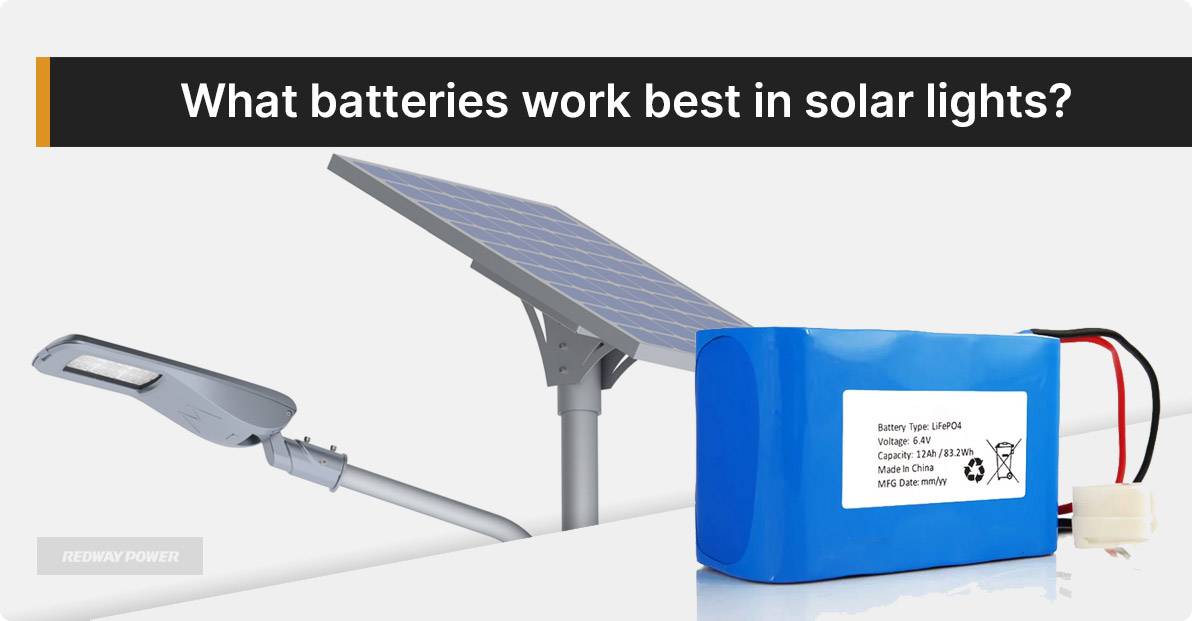
What happens if you put a regular battery in a solar light?
If you put a regular battery (such as alkaline or nickel-metal hydride) in a solar light designed for rechargeable lithium batteries, several issues may arise:
- Incompatibility: Regular batteries may not fit properly in the battery compartment of the solar light, leading to poor contact or connection issues.
- Performance: Regular batteries typically have lower energy density and capacity compared to rechargeable lithium batteries. As a result, they may not provide sufficient power to operate the solar light efficiently, leading to dim or inconsistent lighting.
- Lifespan: Solar lights are designed to be used with rechargeable batteries that can withstand frequent charge and discharge cycles. Regular batteries are not designed for this purpose and may degrade quickly, leading to reduced lifespan and frequent replacement.
- Environmental Impact: Regular batteries are not rechargeable and contribute to electronic waste when disposed of. Using disposable batteries in solar lights contradicts the eco-friendly nature of solar-powered devices.
Overall, using regular batteries in a solar light designed for rechargeable lithium batteries is not recommended as it can lead to performance issues, shortened lifespan, and environmental concerns. It's essential to use the correct type of battery recommended by the manufacturer for optimal performance and sustainability.
What happens if solar lithium batteries freeze?
If solar lithium batteries freeze, their performance and lifespan can be negatively affected. Freezing temperatures can cause the electrolyte inside the battery to freeze, potentially leading to damage such as expansion or leakage. This can result in reduced battery capacity, decreased efficiency, and even permanent damage to the battery cells. It's important to protect lithium batteries from freezing temperatures to maintain their performance and longevity.
